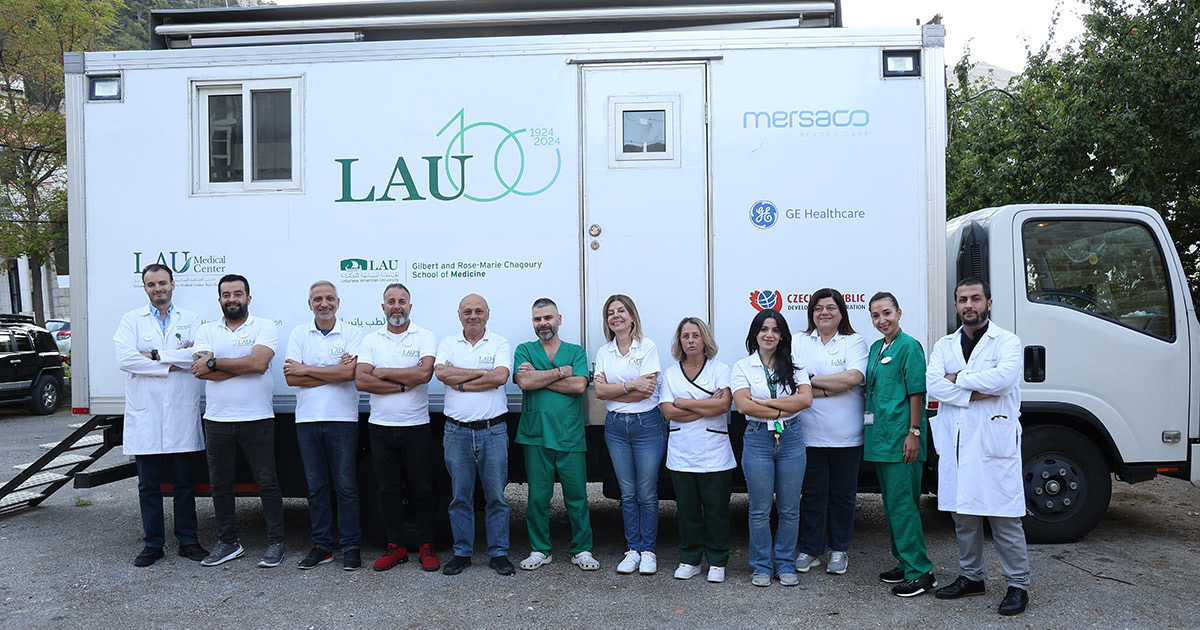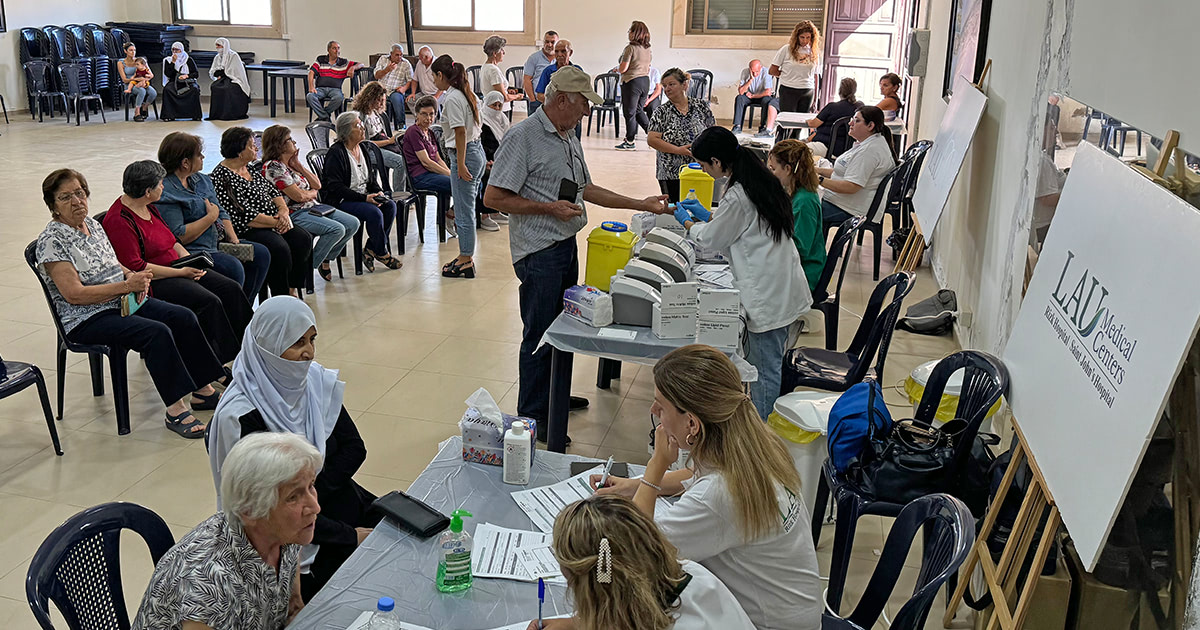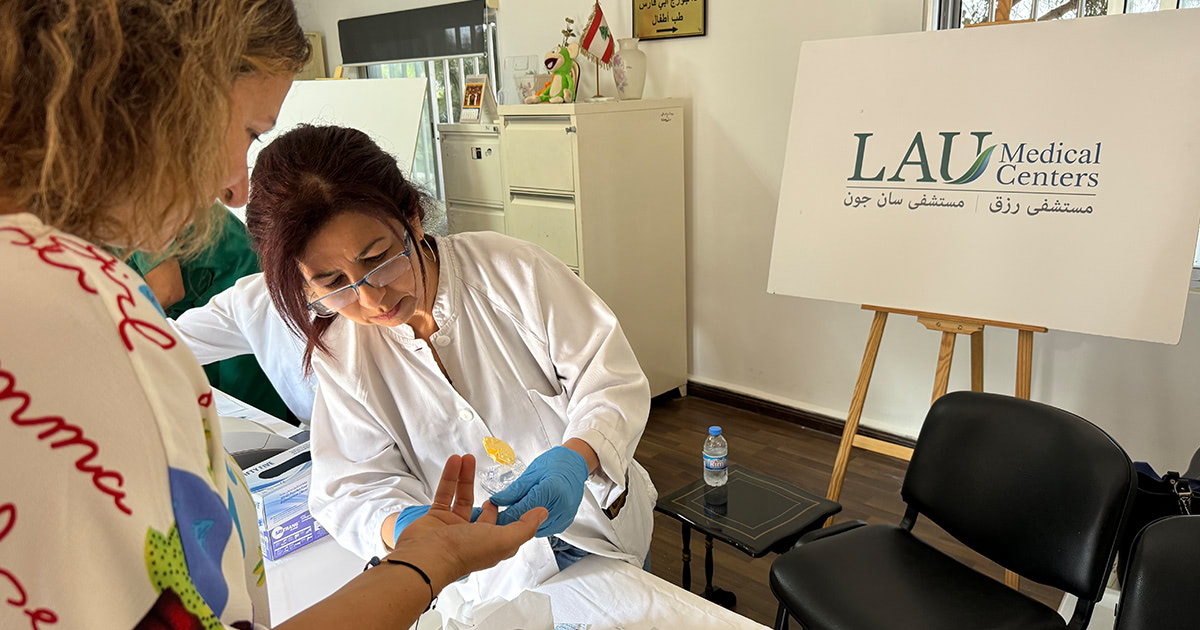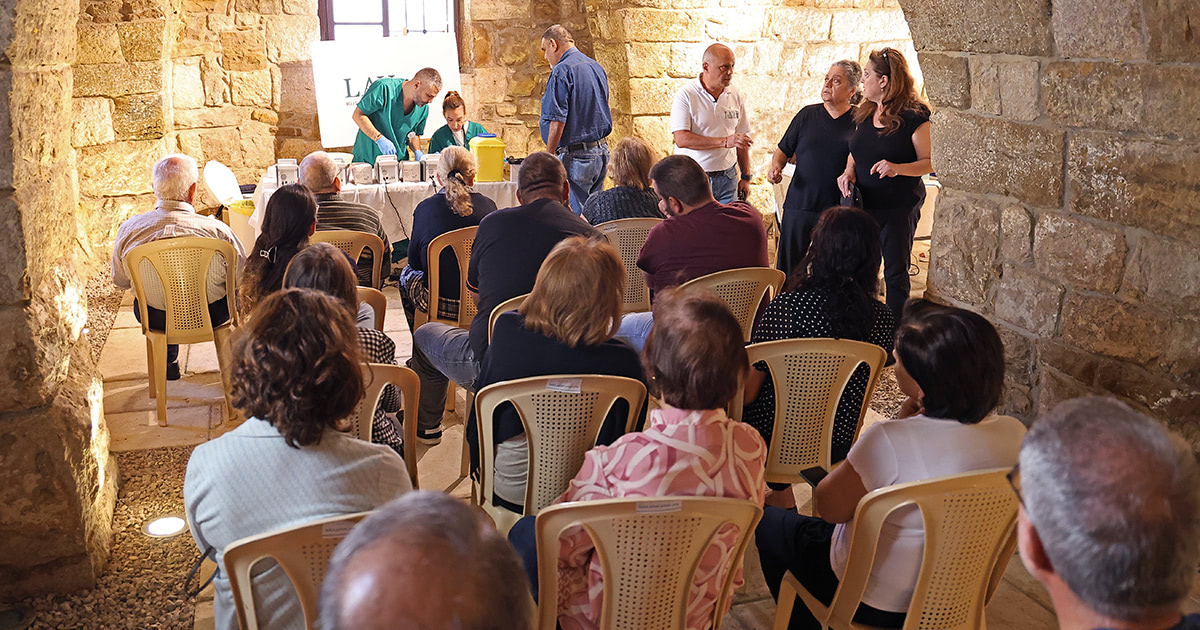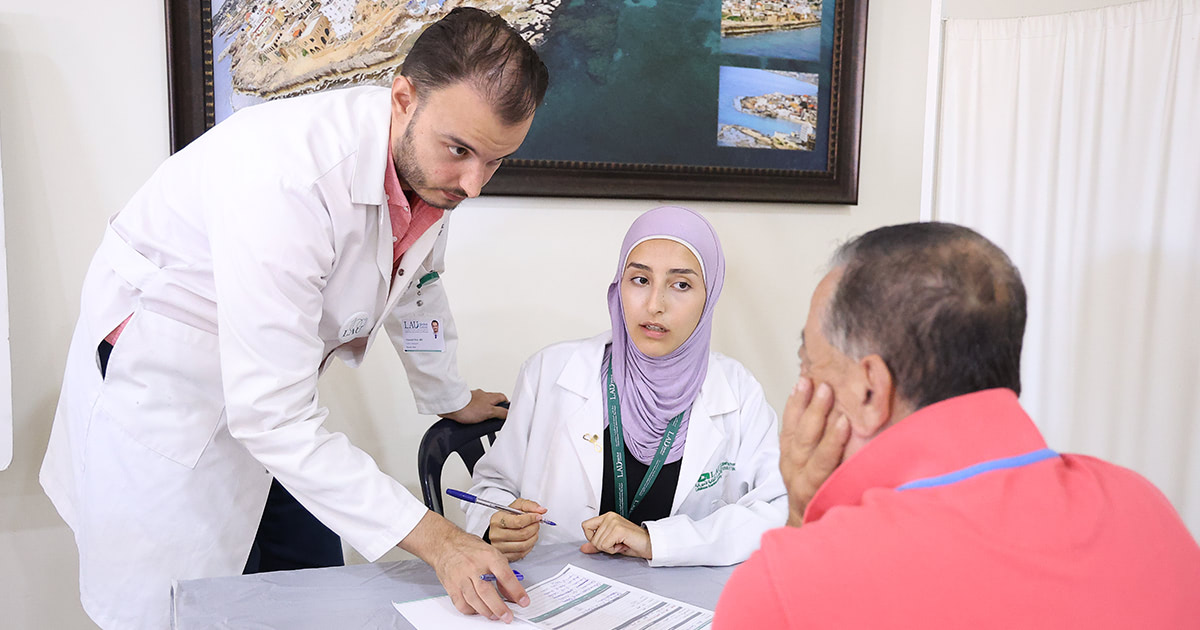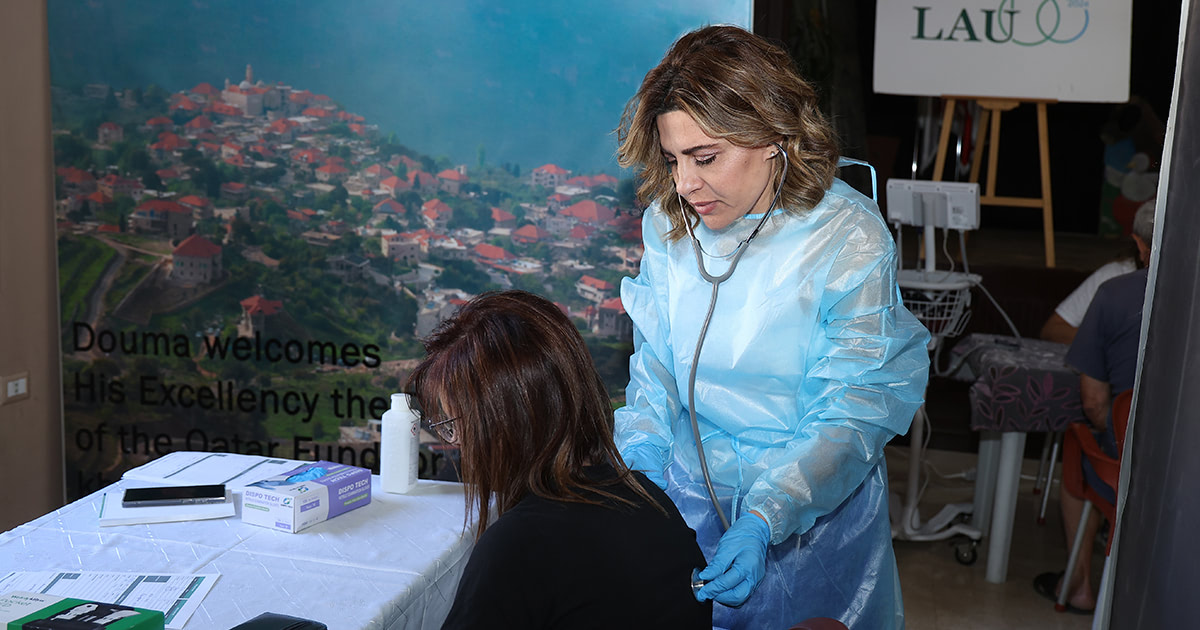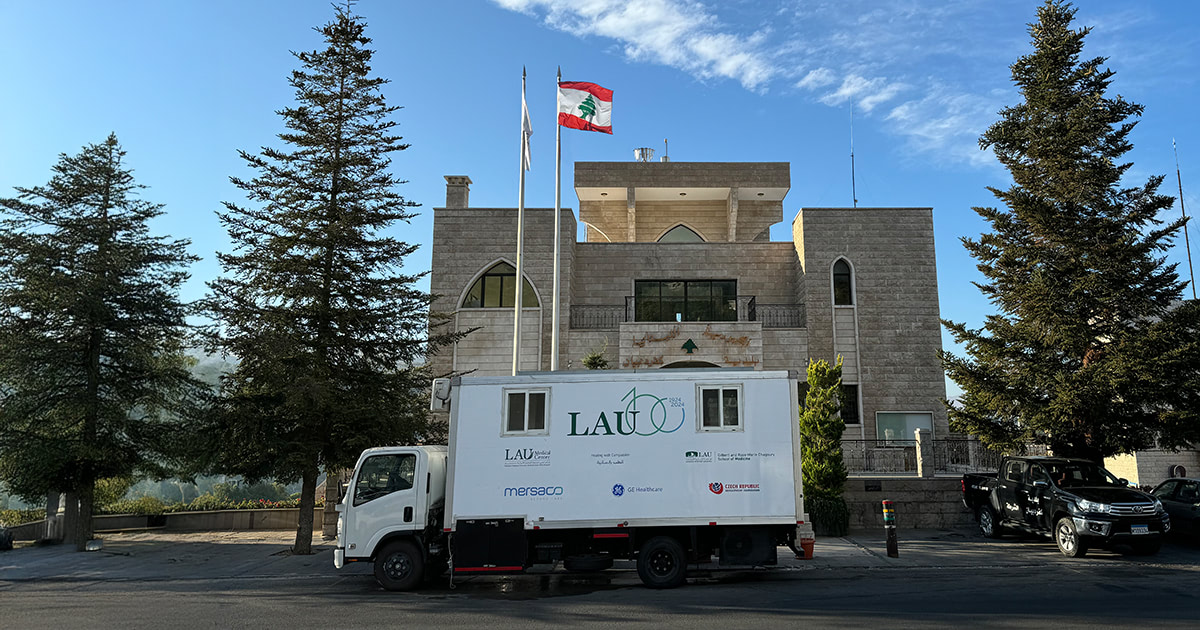Centennial Healthcare on the Go
The LAU Mobile Clinic undertakes more humanitarian missions to address critical health needs and improve access to health services in remote areas.
Initially conceived to deliver essential primary healthcare to underserved populations, the LAU Mobile Clinic rose to the challenge during the pandemic, delivering free PCR tests and COVID-19 vaccines to remote communities and helping contain the disease nationwide.
Four years later, the mobile clinic remains steadfast in improving community health through ongoing missions, compassionately serving marginalized groups and alleviating the burden of preventable illnesses on Lebanon’s healthcare system.
As the university marks its 100th anniversary this year, the LAU Gilbert and Rose-Marie Chagoury School of Medicine and the LAU Medical Center–Rizk Hospital rolled out the Mobile Clinic Centennial Missions, scheduling visits to 26 destinations across the country to provide free comprehensive medical consultations and essential health screenings.
“LAU’s commitment to healing with compassion is at the heart of this initiative,” said Head of Strategic Communications and former Assistant to the President for Special Projects Saad El Zein, who was instrumental in launching the clinic. “This goes to show how LAU’s outreach efforts are making a tangible difference in the lives of those who need it the most.”
The centennial missions are led by a dedicated team of LAU doctors, nurses, residents and medical staff, offering free diagnostic tests such as electrocardiograms for heart health assessment, HbA1c tests to identify diabetes risk, lipid panels for cholesterol, glucose to monitor blood sugar levels and hematocrit and hemoglobin tests to detect anemia and other blood disorders.
“This clinic is just one of many humanitarian initiatives under the umbrella of LAU Health,” said Dr. Tony Zreik, LAU’s vice president for Health Affairs. “Through these efforts, LAU consistently extends its commitment to community health beyond its campuses and medical centers, striving to elevate healthcare standards throughout Lebanon.”
He further emphasized that “these initiatives are focused on building lasting relationships within Lebanon’s communities and ensuring that everyone has access to the medical care they need.”
Bringing healthcare directly to underserved communities helps LAU address a critical gap in the system and foster a culture of proactive healthcare, where educating people about the importance of regular check-ups and early management of health issues is a priority.
Since its inception, the clinic has evolved into a comprehensive medical service provider equipped with advanced machines for immediate test results, a feature that has proven vital in identifying conditions requiring urgent medical attention.
During one of its many missions, for instance, the diagnosis of a patient’s critical health issue allowed for timely intervention that might not have been possible otherwise.
Each mission requires meticulous planning and coordination, from collaborating with local municipalities to secure venues and line up patients to assigning a skilled medical team.
Setting off at dawn, the team follows a detailed hour-by-hour schedule that ensures the clinic reaches its destination on time and is fully prepared to deliver quality care and support to the communities they serve.
As of August, the clinic has undertaken 164 missions, reached 344 towns and villages, and administered 23,329 free vaccines. With each stop, the clinic carries with it a message of solidarity and commitment to the university’s enduring legacy of compassion in action, ensuring that, even in the face of adversity, the spirit of care and community thrives.
